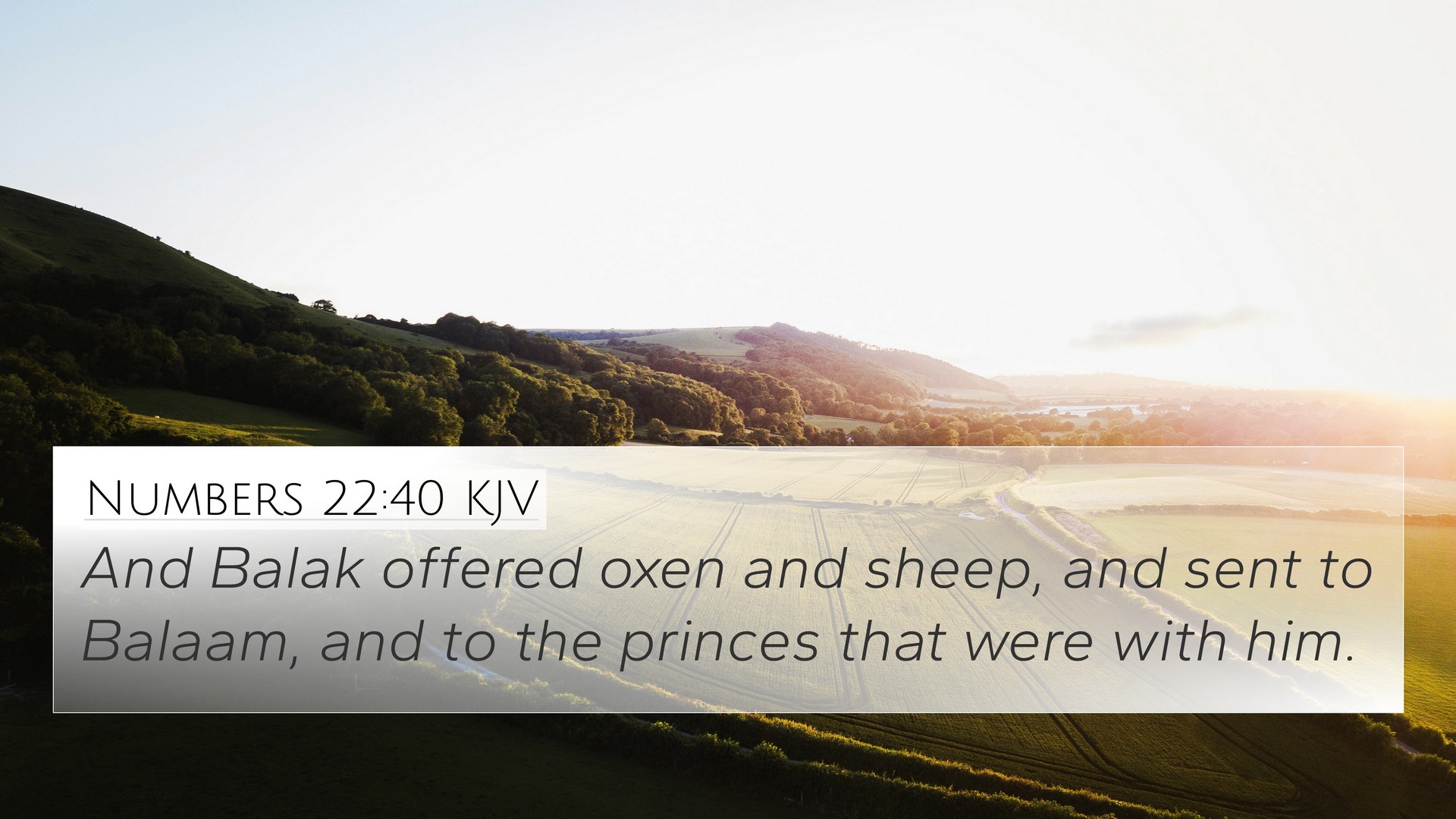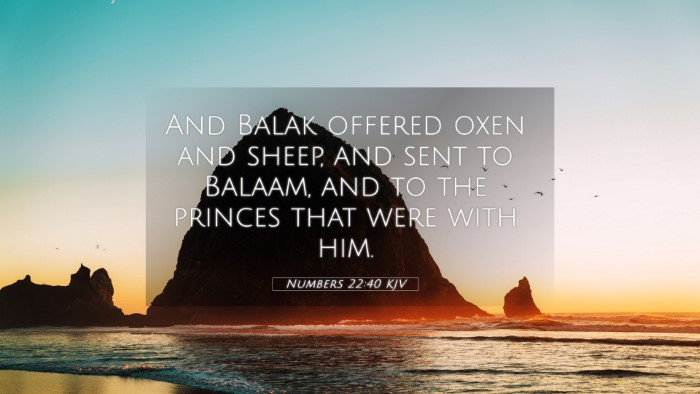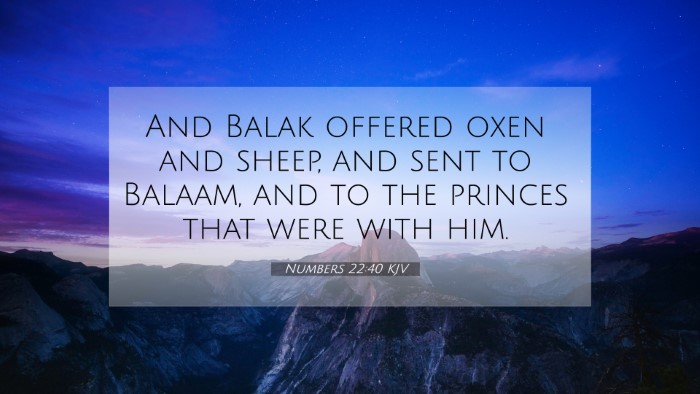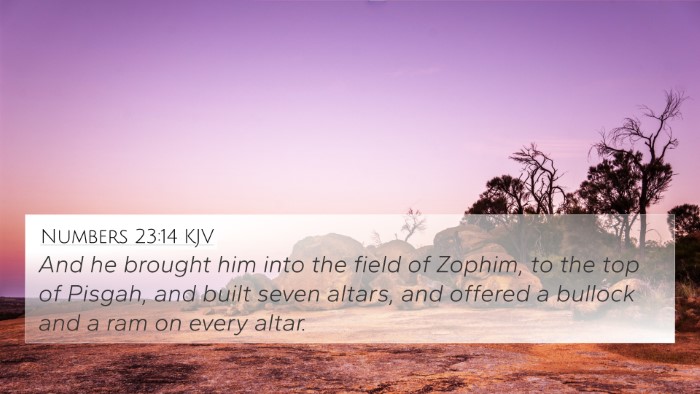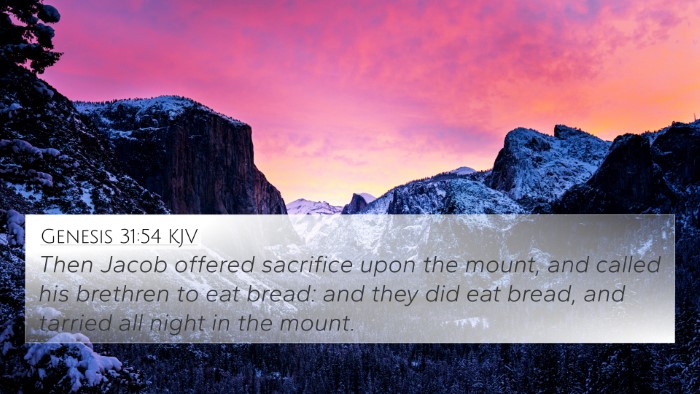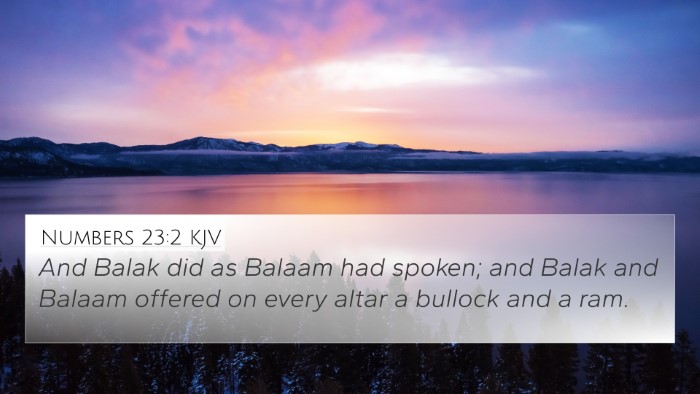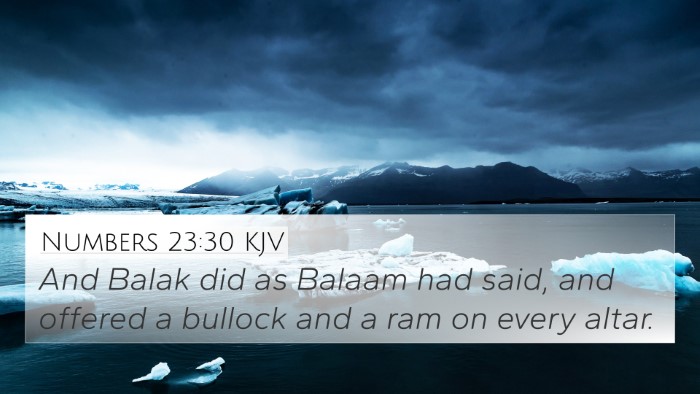Understanding Numbers 22:40
The verse Numbers 22:40 states: "And Balak offered oxen and sheep, and sent to Balaam, and to the princes that were with him." This passage comes from the narrative involving Balaam, a non-Israelite prophet, who was summoned by Balak, the king of Moab, to curse the Israelites. This event is pivotal in illustrating themes of divine sovereignty, prophecy, and the complex interactions between God's people and the nations surrounding them. Let’s explore the insights from various commentaries.
Commentary Insights
Matthew Henry
Matthew Henry emphasizes that the offerings made by Balak to Balaam were an attempt to manipulate divine favor. Balak believed that by providing sacrifices, he could secure Balaam's blessing upon his plans to curse Israel. Henry notes that this act signifies the folly of depending on rituals without the acknowledgment of God's true authority.
Albert Barnes
Albert Barnes expounds on the significance of the sacrificial offerings in the context of ancient Near Eastern customs. He points out that Balak’s offerings were more than mere gifts; they were intended to invoke a spiritual response and demonstrate the seriousness of his request. Barnes highlights that this verse marks the beginning of a confrontation between God’s will and human intentions.
Adam Clarke
Adam Clarke provides a detailed analysis of the socio-political implications of Balak’s actions. He posits that Balak’s offerings were also a display of power and wealth, aimed at impressing Balaam and showcasing Moab's status. Clarke connects this to the larger narrative by illustrating the continuing battle between good and evil throughout the Scripture.
Thematic Connections and Cross-References
Numbers 22:40 connects with several important themes in the Bible, including the sovereignty of God over nations, the futility of opposition against God’s plans, and the importance of true worship and sincerity in offerings.
Related Bible Cross-References
- Numbers 23:8: Balaam's declaration that he cannot curse what God has blessed.
- Deuteronomy 23:3-6: Instructions regarding the Moabites and their relationship with Israel.
- Genesis 12:3: God's promise to bless those who bless Abraham's descendants.
- Isaiah 10:1-3: Woe to those who make unjust decrees against God's people.
- Proverbs 21:30: No wisdom, understanding, or counsel can prevail against the Lord.
- Romans 8:31: If God is for us, who can be against us?
- 2 Peter 2:15-16: Balaam as an example of a false prophet who sought profit over truth.
Importance of Cross-Referencing Biblical Texts
Cross-referencing Biblical texts, like Numbers 22:40, allows for a deeper understanding of scriptural themes and encourages thematic connections between various sections of the Bible. Utilizing tools for Bible cross-referencing, such as concordances and cross-reference guides, can enhance one’s study of scripture by illuminating parallels and contrasts present throughout the text.
Thematic Bible Verse Connections
The connections revealed through a comparative Bible verse analysis helps readers identify broader themes in scripture, such as:
- The Sovereignty of God: Illustrated in God's ability to bless His people despite attempts to curse them.
- False Prophecy: Highlighted in the character of Balaam, reminiscent of warnings found in prophetic literature.
Conclusion
Numbers 22:40 serves as a significant passage within the biblical narrative, presenting rich themes for study and reflection. By understanding the interplay of characters and their motivations within this verse and its context, believers can grasp the magnificence of God's providence and the futility of opposition to His will.
